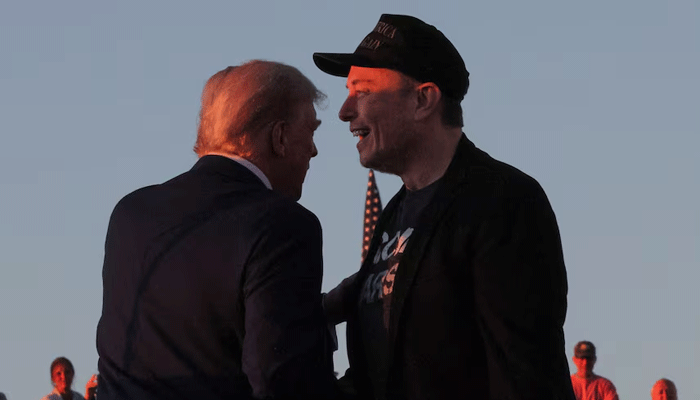What began as one of the most unconventional alliances in modern U.S. political history has erupted into a digital inferno, with President Donald Trump and tech mogul Elon Musk now locked in an all-out social media war. The implosion, shocking in tone but perhaps not in inevitability, marks the dramatic collapse of a relationship once hailed as a strategic convergence of wealth, influence, and power.
Over the past week, Americans have watched in disbelief as Musk and Trump once partners in reshaping Washington unleashed venomous attacks across the internet, leaving political commentators stunned and Republican strategists scrambling.
Once Allies, Now Adversaries
Their strange bromance had taken root in the chaos of Trump’s second-term bid. Musk, the billionaire engineer behind Tesla, SpaceX, and the social media platform X, had thrown his considerable weight behind Trump’s comeback. He provided not just financial backing, but a digital loudspeaker to Trump’s MAGA revival one that resonated with tech-savvy voters and helped reshape the Republican narrative.
But behind the scenes, ideological cracks were forming. And when Musk criticized Trump’s flagship legislative package describing it as a “disgusting abomination” riddled with wasteful spending the dam broke.
Trump, initially restrained, eventually fired back, branding Musk as “CRAZY” and accusing him of “wearing thin.” Musk responded in kind, suggesting Trump should be impeached, accusing him of economic betrayal, and alluding without evidence to a cover-up involving Trump and the late Jeffrey Epstein.
The collapse has sent shockwaves through Washington, Silicon Valley, and conservative circles. For many, it’s not just a squabble it’s a nuclear rift between two of the most polarizing figures in global politics.
Power Struggles, Ego Wars, and Policy Fallout
Their relationship was never conventional. Trump, the 78-year-old real estate mogul turned populist president, and Musk, the 53-year-old South African-born futurist, shared a flair for drama and disruption. Both men commanded massive public followings. Both wielded power with unorthodox flair.
But they also clashed on substance. Trump’s tariffs threatened Musk’s global supply chains. Musk’s libertarian leanings grated against Trump’s protectionist instincts. Behind the smiles and rally appearances, discontent was brewing.
Inside the White House, Musk had acted more like a shadow chief-of-staff than an adviser. He slept in the Lincoln Bedroom, inserted his engineers into federal agencies, and even poked fun at Cabinet officials. Trump once called him “the smartest guy I’ve met,” but now refers to him as “a liability.”
Now, with Musk publicly accusing Trump of economic sabotage and Trump threatening to cancel federal contracts with Musk’s companies, the consequences could be immense.
SpaceX and Tesla two companies critical to U.S. infrastructure, defense, and climate policy could face political retaliation. Congressional support for Trump’s legislative goals has wavered. Republican unity is fraying.


